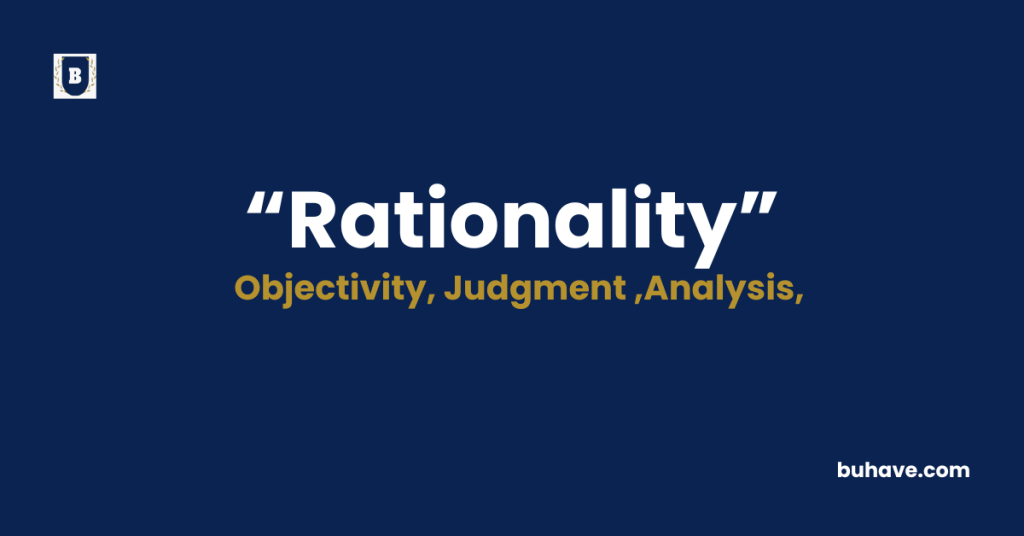The word Rationality (Noun) refers to the quality of being logical, reasonable, and based on facts or clear thinking. In this guide, you’ll learn the full definition, synonyms, antonyms, etymology, and real-life examples of how to use Rationality correctly in sentences.
Rationality Explained in Depth
A complete and detailed guide to the word Rationality including meaning, definition, examples, etymology, synonyms, and antonyms.
Meanings of Rationality
Rationality means the ability to think clearly and make decisions based on logic, facts, and reason rather than emotions or impulses. It reflects a mindset that values objective analysis and sound judgment in understanding or responding to situations.
Definition
Rationality refers to the quality or state of being rational—thinking, speaking, or acting in a way that is coherent, consistent, and justifiable by reason. It involves evaluating evidence, drawing logical conclusions, and making decisions that align with objective reality. Rationality is often associated with intelligent problem-solving, strategic planning, and emotionally balanced behavior. In philosophy and economics, rationality is used to describe individuals who act in a way that maximizes their goals based on available information. Rationality plays a central role in science, ethics, debate, and daily life,
where well-reasoned choices lead to more stable and positive outcomes. It does not mean ignoring emotion altogether but balancing it with thoughtful analysis to guide action.
Etymology
The word rationality comes from the Latin root rationalitas, meaning “reasonableness” or “logic,” which stems from ratio, meaning “reason” or “calculation.” It entered English in the late 15th century as part of philosophical and theological discussions about human capacity for reason. In the Enlightenment period, rationality became a core value associated with scientific thinking and human progress. It was championed by thinkers like René Descartes and Immanuel Kant as a defining trait of humanity.
Today, the term is widely used across disciplines from behavioral economics and artificial intelligence to psychology and everyday life—to describe the use of reason in decision-making and belief formation.
Example Sentences
- Her rationality helped defuse the tense situation calmly and effectively.
- Good leadership often depends on a balance between rationality and empathy.
- The theory assumes human rationality, though emotions often influence choices.
Rationality Synonyms
- Logic
- Reason
- Sound judgment
- Sense
- Clear thinking
- Coherence
- Sanity
- Objectivity
- Wisdom
- Intellect
Rationality Antonyms
- Irrationality
- Emotionalism
- Illogicality
- Foolishness
- Imbalance
- Absurdity
- Impulse
- Madness
- Chaos
- Delusion
FAQs about Rationality
Here are some frequently asked questions (FAQs) about the word “Rationality”
1. What does “rationality” mean?
It means using logic and reason to make decisions or understand situations, avoiding impulsive or emotional reactions.
2. Is rationality the opposite of emotion?
Not exactly. Rationality balances emotion with logic. Both can work together when guided properly.
3. Why is rationality important?
It leads to better decisions, effective communication, and fair problem-solving in personal and professional life.
4. How is rationality used in economics?
In economics, rationality assumes individuals make choices that maximize their utility or benefit based on available information.

















